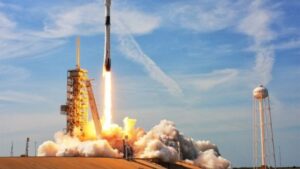
The Falcon 9 launch vehicle on Saturday put into orbit a batch of 21 mini-satellites to replenish the orbital constellation of the Starlink system’s global Internet coverage network, developer SpaceX said.
“On Saturday, February 8 at 2:18 p.m. ET (9:18 p.m. Kiev time), a Falcon 9 rocket launched 21 Starlink satellites into low-Earth orbit, including 13 with direct cellular access capability,” the company said in a statement on its website.
The rocket was launched from the 40th launch complex of the U.S. Space Force base at Cape Canaveral in Florida.
As part of the launch, the first reusable stage of the launch vehicle, which was used for the 17th time, made a controlled vertical landing on the offshore drone platform A Shortfall of Gravitas in the Atlantic after separation.
Since May 2019, SpaceX has already launched more than 7,800 such satellites as part of the Starlink project. Some of them failed or went out of orbit. More than 6.9 thousand vehicles are in orbit in working condition.
SpaceX is the largest satellite operator in the world. Starlink Internet network is available to users in 75 countries, including North and South America, Europe, Asia, Africa and Australia. According to the Pentagon, the services of these satellites are also actively used by the U.S. military.
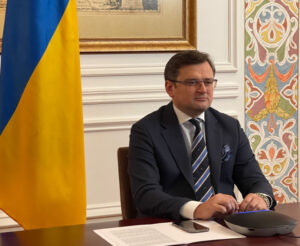
Ukrainian Foreign Minister Andriy Sibiga has invited foreign ambassadors who speak Ukrainian to an informal meeting at the diplomatic residence.
“Today gathered in the diplomatic residence of foreign ambassadors who speak Ukrainian. Our sign of respect to those who treat with respect to us. I am grateful to the heads of diplomatic missions for the conversation about the popularization of our culture, as well as a just world,” he wrote in social network X.
From the country flags attached to the post, it can be understood that the heads of diplomatic missions of such countries as Azerbaijan, Canada, Croatia, Germany, the United Kingdom, the Vatican, Latvia, Montenegro, the Palestinian Territories, Serbia, Slovenia, Spain, Turkmenistan, Uzbekistan, Algeria, Bulgaria and Poland were invited.
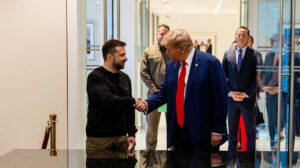
U.S. President Donald Trump said in an interview aboard Air Force One that he wants to strike a $500 million deal with Ukrainian President Volodymyr Zelensky on access to rare earth minerals and natural gas in Ukraine in exchange for security guarantees in any potential peace settlement, The New York Post reported Saturday.
According to the publication, also present on the plane was national security adviser Mike Waltz, addressing whom Trump said: “Let’s keep these meetings going. They want to meet. People are being killed every day. Young beautiful soldiers are being killed. Young men like my sons. On both sides. All over the battlefield.”
It is noted that Vice President Vance will meet with Ukrainian President Volodymyr Zelensky at the Munich Security Conference next week.
Trump said he spoke on the phone with Vladimir Putin in an attempt to negotiate an end to the war in Ukraine.
“I’d rather not talk,” Trump said when asked how many times the two leaders had spoken. But he believes Putin “cares” about killing on the battlefield.
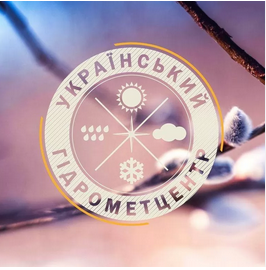
On Sunday, February 9, in Ukraine without precipitation, the roads in the northern, eastern and most central regions are icy in places, reports Ukrhydrometcenter. The wind is northeastern, in western regions southeastern, 5-10 m/s, in Azov region gusts of 15-20 m/s in some places.
The temperature at night 6-11° frost, in the daytime 1-6° frost. In western and southern regions from 2° of frost to 3° of heat, in Transcarpathia 3-8° of heat.
In Kiev, no precipitation, northeast wind, 5-10 m/s. The temperature at night 7-9° frost, during the day 3-5° frost.
As reported by the Central Geophysical Observatory named after. Borys Sreznevsky, the highest daytime temperature on February 9 in Kiev was recorded in 1990 and amounted to 8.3° of heat, the lowest at night – 32.2° below zero in 1929.
On Monday, February 10, in Ukraine without precipitation. On the roads, except for most of the western and southern regions, in some places icy.
The wind is predominantly northeasterly, 3-8 m/s.
The temperature at night is 6-11° of frost. During the day 1-6° frost, in western and southern regions from 3° frost to 2° warm, in Transcarpathia 2-7° warm.
In Kiev, no precipitation, northeast wind, 3-8 m/s. The temperature at night 7-9° frost, during the day 3-5° frost.
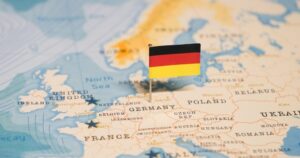
German industrial production in December 2024 fell by 2.4% from the previous month, the country’s statistical office said. Analysts on average expected a decline of 0.6%, according to Trading Economics.
The dynamics of the indicator became the worst since July last year. According to the revised data, industrial production increased by 1.3% in November, not 1.5%, as previously announced.
The decline in industrial production in December was largely due to a 10% drop in automobile production. Meanwhile, output of pharmaceuticals jumped 11.6%.
The output of capital goods fell 4.7%, intermediate goods fell 3.3%, and consumer goods production rose 0.9%. Construction output remained at the same level as the previous month.
On an annualized basis, German industrial production fell 3.1% in December. For the full year 2024, German industrial production fell by 4.5%.
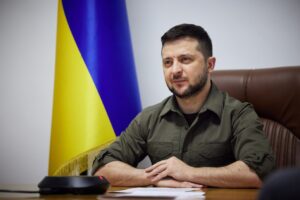
President Volodymyr Zelensky announced that the government will soon launch contracts for the recruitment of 18-24 year olds into the Armed Forces of Ukraine.
“Next week, the government intends to launch lucrative recruitment contracts to attract young people aged 18-24 – up to draft age – to the Armed Forces to help eliminate labor shortages,” he told Reuters.
However, Zelensky declined to say how many men are expected to sign up.
As reported, the special representative of US President-elect Donald Trump, Mike Volz, believes that to stabilize the front in Ukraine it is necessary to lower the mobilization age, which would allow to call into the army “hundreds of thousands of new soldiers”.
Earlier, Zelensky commented on the discussion on lowering the mobilization age in Ukraine, pointing to the understaffing of Ukrainian brigades and the lack of weapons.